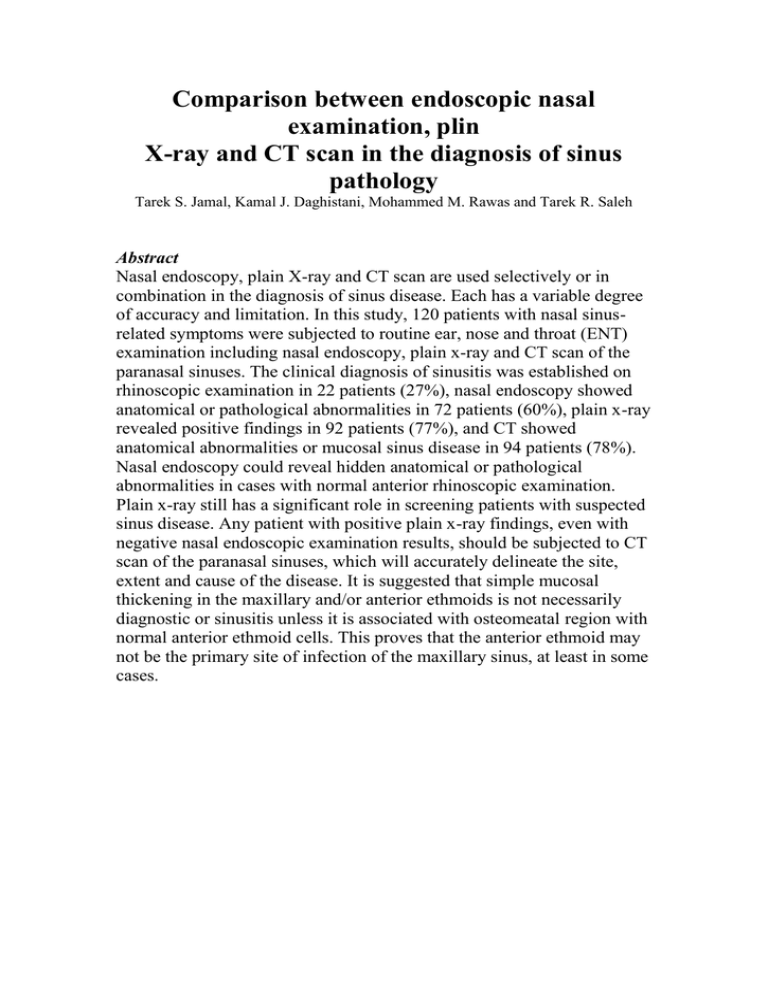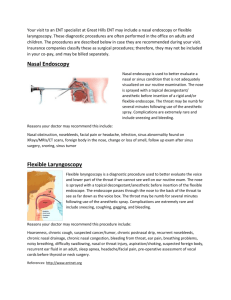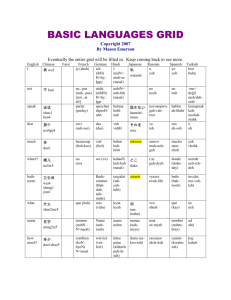20818.doc
advertisement

Comparison between endoscopic nasal examination, plin X-ray and CT scan in the diagnosis of sinus pathology Tarek S. Jamal, Kamal J. Daghistani, Mohammed M. Rawas and Tarek R. Saleh Abstract Nasal endoscopy, plain X-ray and CT scan are used selectively or in combination in the diagnosis of sinus disease. Each has a variable degree of accuracy and limitation. In this study, 120 patients with nasal sinusrelated symptoms were subjected to routine ear, nose and throat (ENT) examination including nasal endoscopy, plain x-ray and CT scan of the paranasal sinuses. The clinical diagnosis of sinusitis was established on rhinoscopic examination in 22 patients (27%), nasal endoscopy showed anatomical or pathological abnormalities in 72 patients (60%), plain x-ray revealed positive findings in 92 patients (77%), and CT showed anatomical abnormalities or mucosal sinus disease in 94 patients (78%). Nasal endoscopy could reveal hidden anatomical or pathological abnormalities in cases with normal anterior rhinoscopic examination. Plain x-ray still has a significant role in screening patients with suspected sinus disease. Any patient with positive plain x-ray findings, even with negative nasal endoscopic examination results, should be subjected to CT scan of the paranasal sinuses, which will accurately delineate the site, extent and cause of the disease. It is suggested that simple mucosal thickening in the maxillary and/or anterior ethmoids is not necessarily diagnostic or sinusitis unless it is associated with osteomeatal region with normal anterior ethmoid cells. This proves that the anterior ethmoid may not be the primary site of infection of the maxillary sinus, at least in some cases.

